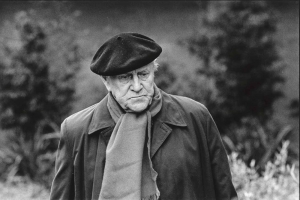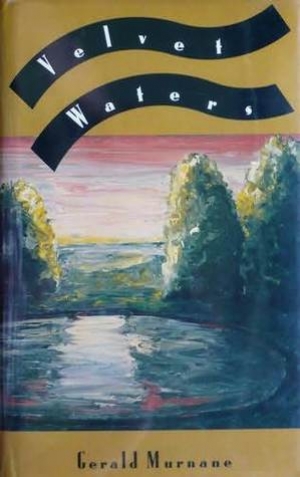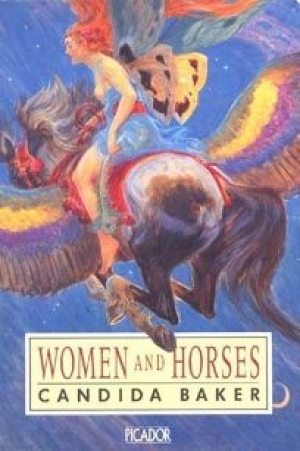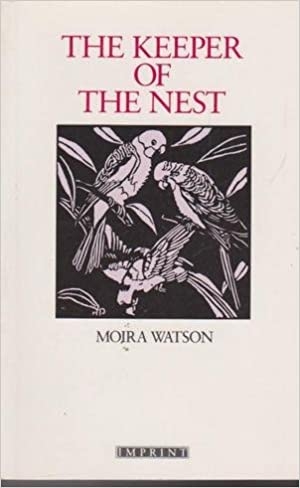Archive
Terri-Ann White reviews 'Trouble in Lotus Land' by Charmian Clift, 'The Devious Being' by Betty Roland, and 'Eat My Words' by Marion Halligan
The task of reading these three books together provided more than I was anticipating. Their perspectives of decades of Australian society and writing practices cover the past, the personal and the politics. The writers come from three different generations (born 1903, 1923, 1940), and represent particular writing intentions or schools, certainly different genres. The connecting thread, probably the only one, is that each of the books is written form such a particularised stance. Each is written in the first person, and flirts to varying degrees with the confessional mode. The tensions between restraint and letting it all hang out, what gets said and what comes out in the not-saying, interested me.
... (read more)I met Patrick White first in 1965. Reduced to 1.9s.6d, he was lying, in an American edition of Riders in the Chariot, on a sale table at Finney Isles department store in Brisbane. So much has changed. Today, we would talk of remainders; the shop has been taken over by David Jones which has in turn been taken over by Adelaide Steamship which later bought up Grace Bros; prices are now given in dollar and cents.
... (read more)Alex Miller was recently awarded the Braille Book of the Year Award for his novel The Tivington Nott. When he accepted this award, he spoke of the archaeology of writing and how he sees his work as being like a buried city, waiting to be excavated. This is an edited extract from his speech.
Writers and readers, it seems to me, are often driven by a need to confess. Everything. Not just sins. But the lot. To confess in the original secular sense of this word; to utter, to declare (ourselves, that is), to disclose and uncover what lies hidden within us. If I’d not been a writer, I used to think I’d like to have been an archaeologist. It’s only recently I’ve located the connection between writing fiction and archaeology. Historians and biographers are probably just as confessional in their work as writers of declared fictions. But they are undoubtedly able to more easily disguise this because they are accountable to the objective – to outcrops of unrelocatable facts along the way, that is.
... (read more)Writers and readers, it seems to me, are often driven by a need to confess. Everything. Not just sins. But the lot. To confess in the original secular sense of this word; to utter, to declare (ourselves, that is), to disclose and uncover what lies hidden within us. If I’d not been a writer, I used to think I’d like to have been an archaeologist. It’s only recently I’ve located the connection between writing fiction and archaeology. Historians and biographers are probably just as confessional in their work as writers of declared fictions. But they are undoubtedly able to more easily disguise this because they are accountable to the objective – to outcrops of unrelocatable facts along the way, that is.
... (read more)I have walked long and often with this writer man, travelled with him on trains, listened to him give exact references on the Melways map, noted him noting his whereabouts and those places about and abutting his whereabouts, and I am still uncertain why his work interests me so much, unless it be that the geography of the imagination is the first and the last landscape of grasslands to be explored and that the inland of an island such as ours will always be an ambiguous place which may display a real sea and a centre or mirages of either.
... (read more)Stuart Macintyre reviews 'Charles Perkins: A biography' by Peter Read
His minister described him as a permanent troubleshooter. And yet Charlie Perkins was surely the most trouble-prone and troublesome permanent head in Australian administrative history. Where other bureaucratics operated stealthily to preserve the outward appearance of responsible government, he engaged in calculated acts of public defiance and abuse of the governments he was meant to serve. They could no more dispense with his services, however, than he could operate without their largesse. And so for the best part of twenty year the volatile mediator orchestrated relations between the state and the modern Aboriginal movement.
... (read more)Kerryn Goldsworthy reviews 'Blessed City' by Gwen Harwood
Gwen Foster met Lieutenant Thomas Riddell in Brisbane in 1942, when she was twentytwo. ‘Tony’ Riddell, stationed in Brisbane, was sent to Darwin early in 1943; and between January and September of that year, Gwen Foster wrote him the eighty-nine letters that make up this book. It’s the chronicle of a year, of a city, of a family, of a friendship, of a war no one could see an end to, and of that stage in the life of a gifted young woman at which she says, ‘At present I am unsettled and do not know which way my life will turn.’
... (read more)As interviewer to the literary gentry in the Yacker series, Candida Baker could hardly be deemed a stranger to the agonies and ecstasies of the fiction writer’s craft. Her skill as interviewer and journalist has attracted attention and praise, and now everyone who’s been holding their breath to see how Candy Baker would manage her own first excursion into fiction can relax with a sigh of relief.
... (read more)One afternoon at the recent Melbourne Writers’ Festival I noticed that, while adulatory throngs surrounded Elizabeth Jolley and Thea Astley, another notable member of our literary matriarchy, Gwen Harwood, sat quietly outside in the sun, deep in philosophical discussion with a younger poet. This is a comment on the differential status accorded to fiction writers and poets, but also on the relatively self-effacing Gwen and her presence or place in the literary world.
... (read more)Vashti Farrer reviews 'The Keeper of the Nest' by Moira Watson
Comedy and violence co-exist happily in this delightful first novel about a group of weekend bird watchers who themselves become the objects of scrutiny.
... (read more)








